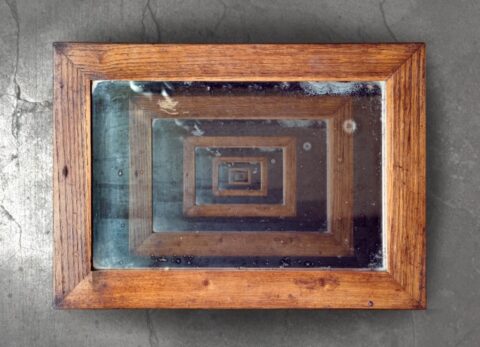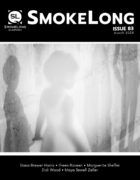There’s a dog curled up, sleeping. There are crows, screaming. Behind the dog, below the crows, there is a wall. There is one word inscribed on the wall. Azadi. Behind that wall is a military camp. Ask the men of my country what lies inside that camp. And they will tell you about death. About traces of their blood, their skin, their flesh, their bones and their ghosts hanging from the walls of the camp. Calling for help. Calling for death. Calling for mothers. Calling for their countrymen to rise up and revolt. Behind that military camp is another wall with another word. And that word is Azadi. In front of the wall is a procession. Men crying, women wailing. In the middle of the procession, there is a child wrapped in a shroud. Under the shroud, his eyes are shut. Walk backwards. Follow the trail. Smell the blood. Watch people gather fragments of his brain. And bury them in another graveyard. Watch his father cradle his schoolbooks. And carry them around on his shoulders. The way he once carried his son. At the walls of the graveyard, there is another child, scribbling another word on the wall. And that word is Azadi. A mother watches the child. In the rhythm of his hands, she hears a lullaby. In the lullaby, she sees her son. Ask her about her son. She will tell you his smile could melt the snow on their mountains. She will tell you he visits her in dreams. She will tell you she has been sleeping a lot these days. She will tell you about the morning he was taken away. How he had left to buy lavaas. How he held his kanger under his pheran to warm his hands. How they emptied it on his head, the embers burning his beautiful black hair. How the embers are etched in her palms, too, burning her still. How they covered his head with his pheran and dragged him away. How she had run after them like a madwoman. How the remnants of the kanger are safe in her home. Like how her son was once in her womb. She will tell you in her every breath, is a curse. And one day her curse will swallow the world that took her son. She will tell you her heart is a graveyard. Her home is a graveyard. Behind her graveyard, there is another home with another word written on the walls. And that word is Azadi. In that home there is a girl. Ask her, when was the last time she looked through the window. She will tell you it was the day she lost her sight. Ask her how she lost her sight. She will tell you it happened because she was looking through the window. Ask her how many pellets are inside her eyes. She will lay before you the hairs in her braid. Ask her how many days it has been. And she will tell you it was the year of the dead eyes. Ask her, when was the last time she went to school. She will lead you to one corner of her home, where her schoolbooks gather dust. And then she will say, as soon as the curfew ends, as soon as my eyesight returns. Repeat after her, as soon as the curfew ends, as soon as the eyesight returns. Inshallah. Inshallah. Beyond this home, is another home, with another word written on its walls. And that word is Azadi. And beyond all words on all the walls of all the homes in this country of the dead eyes, there is another country, with another word written on its walls. And that word is.
A Case for Forbidden Words

Art by SmokeLong


 The SmokeLong Grand Micro Contest (The Mikey) is now an annual competition celebrating and compensating the best micro fiction and nonfiction online.
The SmokeLong Grand Micro Contest (The Mikey) is now an annual competition celebrating and compensating the best micro fiction and nonfiction online.